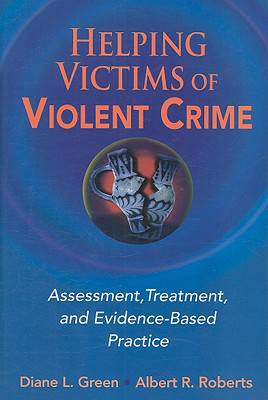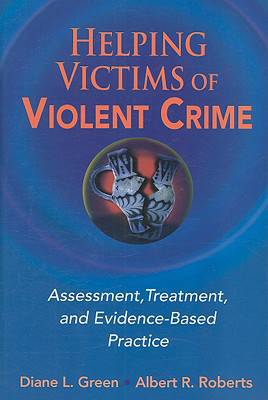
- Afhalen na 1 uur in een winkel met voorraad
- Gratis thuislevering in België vanaf € 30
- Ruim aanbod met 7 miljoen producten
- Afhalen na 1 uur in een winkel met voorraad
- Gratis thuislevering in België vanaf € 30
- Ruim aanbod met 7 miljoen producten
Zoeken
Helping Victims of Violent Crime
Assessment, Treatment, and Evidence-based Practice
Diane Green, Albert R. Roberts
€ 105,45
+ 210 punten
Omschrijving
Experiencing a criminal victimization, be it violent or non-violent, is among one of the most stressful human experiences. This book explores victim assistance through systems theory, the holistic notion of examining the client in his/her environment, and a key theoretical underpinning of social work practice.
Specificaties
Betrokkenen
- Auteur(s):
- Uitgeverij:
Inhoud
- Aantal bladzijden:
- 280
- Reeks:
Eigenschappen
- Productcode (EAN):
- 9780826125088
- Verschijningsdatum:
- 23/06/2008
- Uitvoering:
- Hardcover
- Gewicht:
- 495 g

Alleen bij Standaard Boekhandel
+ 210 punten op je klantenkaart van Standaard Boekhandel
Beoordelingen
We publiceren alleen reviews die voldoen aan de voorwaarden voor reviews. Bekijk onze voorwaarden voor reviews.











